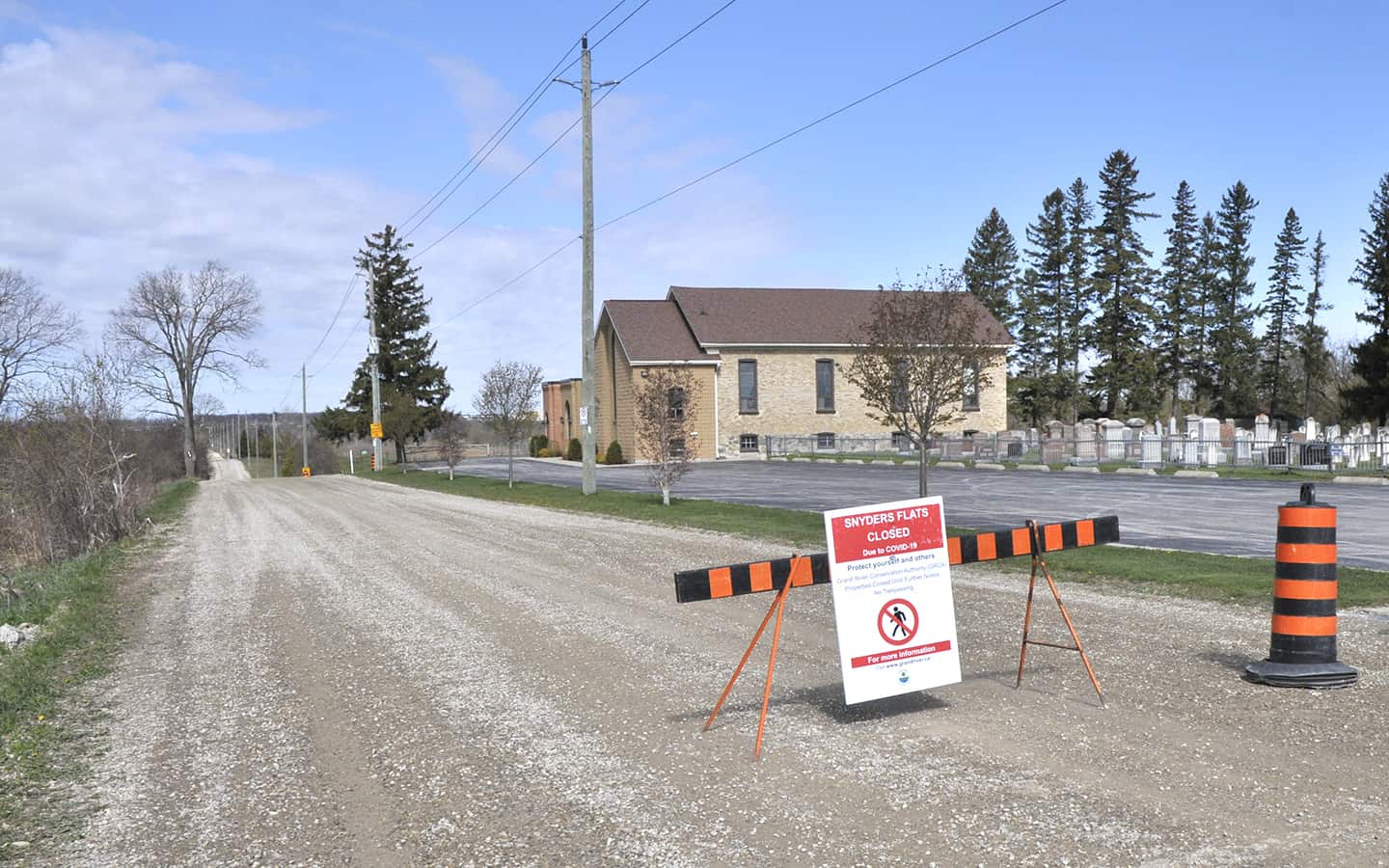The Victoria Day long weekend on the horizon, health officials are advising Waterloo Region residents to continue taking precautions, including the use of masks.
While the spread of the coronavirus has slowed and some restrictions have been loosened, the pandemic is still in effect, said Dr. Hsiu-Li Wang, the region’s acting medical officer of health, in a video briefing this week.
Wearing a mask is a protective measure from spreading germs of your own to other people, like coughing into your elbow – “it should not give you a false sense of security,” she said.
This week saw garden centres and hardware stores re-open, along with many businesses offering curbside pick-up. But it also saw Premier Doug Ford extend the province’s state of emergency until June 2.
Preparing for the long weekend, regional officials are concentrating on monitoring compliance to the rules and enforcing violations, warned chief administrative officer Mike Murray.
This week there were an additional 289 site visits where warnings were issued and public-education measures undertaken, along with 1,426 calls where no action was required. Two new charges were laid, one for not following social distancing measures in a park and the second at a Kitchener grocery store. Both were issued fines of $750 for breaking the Emergency Measures Act.
There were 963 confirmed cases of COVID-19 in the region as of Wednesday morning, 105 of them fatal, an increase of just two deaths since the region’s previous video briefing on May 11.
Of the reported cases in the region since the outbreak began, 528 have been resolved – 55 per cent.
The region is monitoring outbreaks at 11 long-term care and retirement homes, which have seen the largest percentage of cases.
Using the measure of cases per 100,000 population adopted by Public Health, Woolwich Township continues to have the second highest rate in the region at 179.6, surpassed only by Kitchener (271/100K), while Wellesley Township is one of the lowest at 51.8, divided equally between outbreaks in facilities such as retirement homes and the rate among the general population.
“Although we are seeing signs that the rate of infection is relatively controlled at the moment, we are still in a precarious state. The virus can spread very easily and rapidly, and we have seen that this can have severe consequences. That is why I continue to emphasize our need to avoid gatherings to maintain physical distancing, washing our hands frequently and diligently, stay at home when we start to feel sick even mildly so, consider the use of medical masks… and continue to limit the number of times we go out,” said Wang.
Updated figures released Wednesday show Wellington-Dufferin-Guelph Public Health reporting 331 confirmed cases of COVID-19, an increase of two from the previous day. There have been 31 fatalities. Some 160 cases have been resolved, with eight patients in hospital, four in intensive care.
The Ministry of Health reported 21,236 cases of the novel coronavirus in Ontario, an increase of 1.6 per cent over the previous day. There have been 1,765 deaths attributed to the virus, representing a mortality rate of 8.3 per cent. The ministry reports 15,845 cases (74.6 per cent) have been resolved.
The latest numbers from Health Canada show 71,486 confirmed cases of COVID-19 nationwide, with 5,209 related deaths. Some 1,163,816 Canadians have been tested for the virus.
In Waterloo Region, Wang announced a new link on the Public Health Region of Waterloo website to the E-health Centre of Excellence. The link provides online coronavirus self-assessment and works to connect people with primary care workers if it is believed that they have symptoms of the virus.
“It’s been trialled in other areas before us and it has worked well it’s actually based on the same tool that the province uses,” she said of the tool, adding it is unlikely to be overwhelmed by the public flocking to the site.
What distinguishes this launch for the region is that residents are now able to connect to a primary care physician and be assessed virtually, being sent for testing if needed, said Wang.









